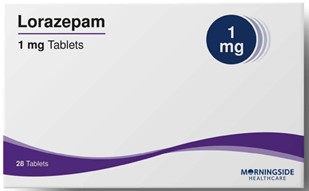A patient who is experiencing moderate anxiety says, "l feel undone." An appropriate response for the registered nurse who needs clarification would be:
Select one:
I’m not sure I understand. Please give me an example...
"Can you explain me everything again?"
"Why do you feel like that? What would you like me to do to help you?"
You must get your feelings under control before we can continue."
The Correct Answer is A
This response is appropriate because it seeks clarification and more information to help the nurse better understand the patient's statement. By asking for an example, the nurse can gain a better understanding of the patient's experience and identify appropriate interventions to help the patient manage their anxiety.
Option b is not an appropriate response as it does not seek clarification and instead asks the patient to repeat themselves.
Option c is partially appropriate but could be improved by asking more specific questions to help the patient articulate their feelings and needs.
Option d is not an appropriate response as it dismisses the patient's feelings and may cause the patient to feel unsupported and isolated.
Nursing Test Bank
Naxlex Comprehensive Predictor Exams
Related Questions
Correct Answer is A
Explanation
The therapist's statement shows a lack of remorse or guilt for committing Medicare fraud. The statement suggests that the therapist does not see anything wrong with overbilling Medicare and taking advantage of the government. This lack of remorse or guilt is a common trait seen in individuals who engage in fraudulent behaviour.
Correct Answer is A
Explanation
Lorazepam belongs to a class of drugs called benzodiazepines, which are central nervous system (CNS) depressants.
Taking other CNS depressants such as opioids or sedatives along with lorazepam can lead to increased sedation, respiratory depression, and other serious side effects. It is crucial for patients to avoid these medications while taking lorazepam.
Reporting insomnia is important, but it is not the most critical teaching for this medication. Eating a tyramine-free diet is not relevant to lorazepam use.
Adjusting the dose and frequency based on anxiety level is not recommended as it can lead to misuse or dependence on the medication. It is important to take lorazepam only as prescribed by a healthcare provider.

Whether you are a student looking to ace your exams or a practicing nurse seeking to enhance your expertise , our nursing education contents will empower you with the confidence and competence to make a difference in the lives of patients and become a respected leader in the healthcare field.
Visit Naxlex, invest in your future and unlock endless possibilities with our unparalleled nursing education contents today
Report Wrong Answer on the Current Question
Do you disagree with the answer? If yes, what is your expected answer? Explain.
Kindly be descriptive with the issue you are facing.
